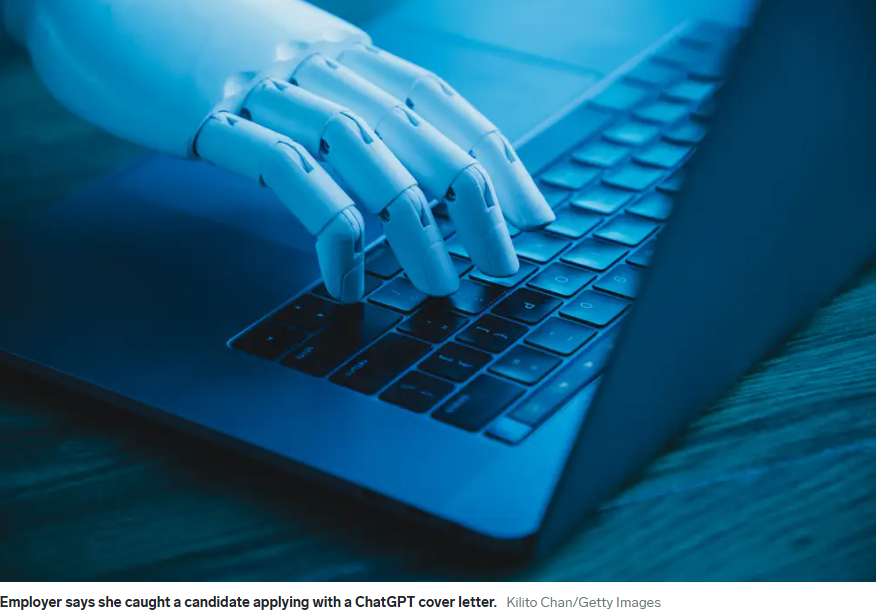
Mandy Tang, a career coach and business owner, said she received an application for a part-time résumé writer role around five minutes after she posted the job on UpWork, an online freelancing platform.
Although she hadn’t requested a cover letter, the job seeker sent her one. At first glance, Tang said they looked like a perfect fit for the role.
“The letter was really well-formed, incredibly well-written, and had literally everything I wanted,” Tang told Insider. “But then I looked closer and realized it was just a copy and paste of everything I had put in the job description.”
She said she noticed the letter even appeared to have lifted some of her own experience: “There was a part in the job description where I had said things like, ‘I have run a business for five years,’ and then the cover letter also said ‘I have run a business for five years.'”
Based on her findings, Tang said she believed the candidate had put the job description through ChatGPT. “I just thought it was wild,” she said.
Tang said she didn’t take issue with job seekers using the technology in general but was shocked the candidate hadn’t appeared to edit the letter or add much personal information.
When tested by Insider, one popular AI detector concluded the text was “likely” written by an AI. OpenAI’s AI classifier said the text was “possibly” AI-generated.
“I thought of responding to them,” she said. “But I just moved on and hired three really great people who were actually qualified — this person was probably qualified too, but I wouldn’t know it from the cover letter.”
Tang documented her experience in a TikTok clip, which has attracted more than 1.8 million views.
ChatGPT has proved popular with job seekers for its ability to write cover letters, with many users demonstrating the results on TikTok. Recruiters previously told Insider that although some AI-generated letters could pass for real candidates, they tended to lack personality.
“If your cover letter is using technical words, broad statements that lack depth and personality, is structurally sound but lacks minute details, it’s highly likely that the recruiter will be able to tell that it is an AI-generated cover letter,” he said.
As AI platforms gain popularity, there is also an increased likelihood of candidates generating letters with the same structures, Boersma said. Recruiters can easily use tools that check for the presence of AI and candidates who are caught out risk losing the job over a perceived lack of effort, he added.
Candidates also run the risk of misrepresenting themselves if they rely too heavily on AI. “As these tools draft responses based on provided information it is possible that generated text aligns with the job description but not with your personal values and beliefs,” Boersma said.
“Make sure you pull in your own personal information,” she said. “You need to proofread it and you need to use it as a starting ground, you can’t just copy and paste it.”


